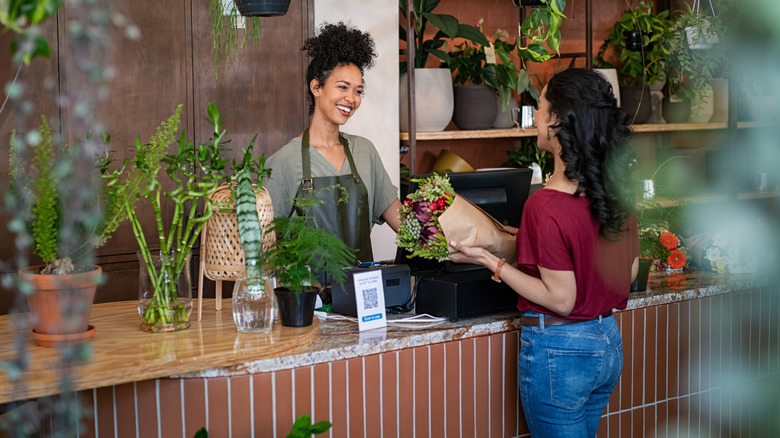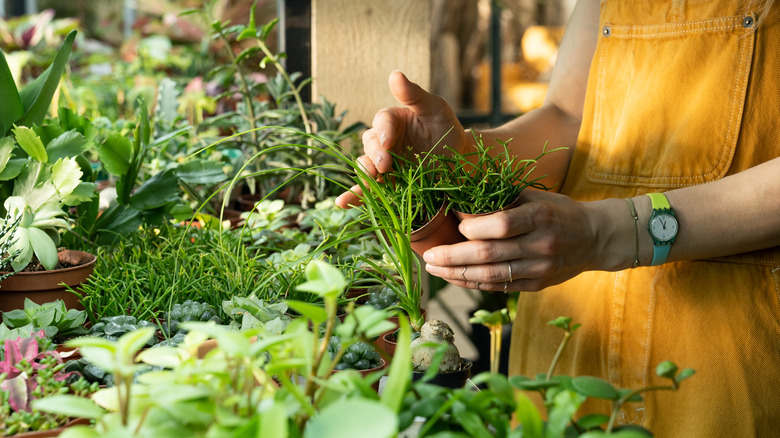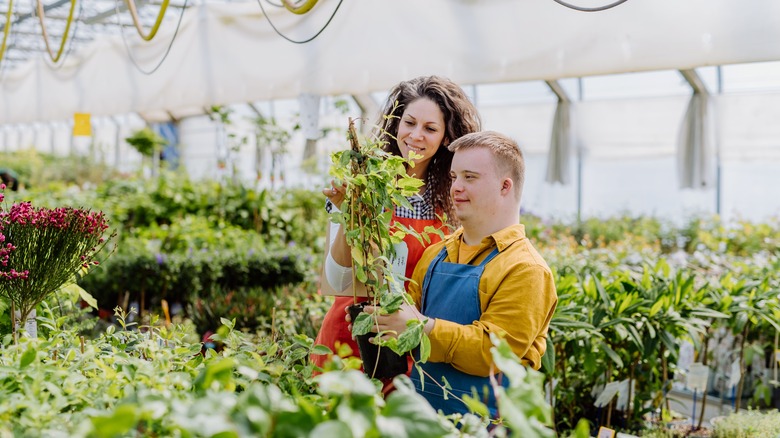Tips For Choosing The Healthiest Plants When Buying From A Nursery
Nurseries offer a much better plant selection than regular stores, but you have to know the right way to shop. One major tip is to give yourself plenty of time to browse the varieties and ask the staff questions before you take your pick. Moreover, checking for health is the most important thing when buying plants at a nursery.
Two main tips for choosing the healthiest plants are to do some research before you get to the nursery and then inspect the plants when you are there. You should also research how the plant will fit into your environment, its growth process, what it needs to thrive, and any issues you can likely expect. Prepping yourself with this information before going to the nursery will allow you to recognize what a healthy version of a specific plant looks like — closely examine its leaves, stems, and roots, checking for any signs of thinning, damage, or disease.
How to examine plants
Starting with the leaves, check both sides for any unusual spots, discoloration, fading, or dryness. Then, check the stems for similar signs as well as any lesions or drooping. Such problems could mean the plant isn't getting the nutrients it needs or has some kind of disease. Holes and missing parts are other signs, which could point to pest or insect damage.
Next, check the flowers and buds. While beautiful blooming plants seem like a good sign, it's better to get plants with more buds instead because they're more likely to survive after being replanted. You'll also get more out of them as time goes on. Finally, carefully check the bottom of the pot to see if its roots are overgrown or damaged in some other way. Root-bound plants are a problem because the roots may not be healthy after being in a container for so long, affecting the plants ability to take in water and nutrients.
More tips for your nursery visit
As mentioned, you shouldn't rush yourself when shopping for plants. Going on a weekday when it isn't busy and being prepared with an idea of what you're looking for will make the trip much more effective. In addition, giving yourself plenty of time will help avoid impule buying and ending up with a plant that doesn't suit your needs. Aim for wholesale nurseries as they offer a wider variety, lower prices, and tend to have healthier plants.
If you're at a nursery you haven't been to before, observe the general appearance of all the plants and see if they have the right labels. This will give you an insight into how well they are taken care of right from the beginning. When choosing a new plant, don't be afraid to start small. Even though it takes more time, small plants are more likely to survive replanting. Plants that are local to your area will also do better in your home because they are suited to thrive in your environment.


